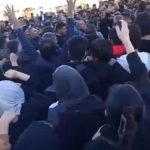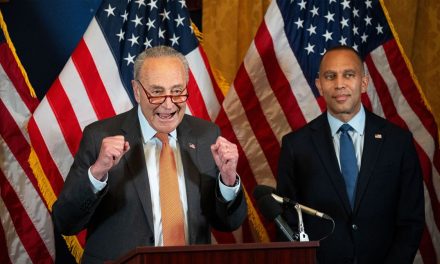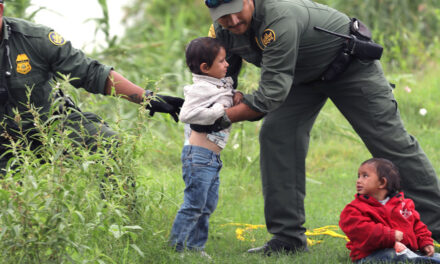
Russian Mercenary Group Wagner Rebels, Marches on Moscow – Putin Negotiates

Armed rebels belonging to the Wagner Group a large Russian mercenary group had advanced northward through Russian territory and appeared to be heading towards Moscow. Multiple reports confirmed their progress.
Led by Wagner Group chief Yevgeny Prigozhin, the rebels embarked on a “march for justice” with the aim of ousting Russia’s military leadership. They had successfully taken control of Russian military facilities in Rostov-on-Don, a city located near the Ukrainian border and serving as the headquarters for the Russian military overseeing the supply line for Putin’s Ukraine invasion.
Additional Wagner troops were reported to be moving through Vorenezh Oblast, a city approximately 300 miles north of Rostov-on-Don. The UK Ministry of Defense provided intelligence suggesting that Wagner units were almost certainly targeting Moscow. While there was limited evidence of fighting between the Wagner Group and Russian security forces, some speculated that the latter had remained passive, allowing the rebel advance. Reports also indicated that Wagner fighters had seized military facilities in the city of Voronezh, although independent confirmation of the situation was not available.
In the midst, Russian official Dmitry Medvedev has expressed concern that if the rebellion led by the Wagner Group had been successful, it could result in the group gaining control of Russia’s nuclear weapons. Medvedev, the deputy head of Russia’s Security Council, warned that such a scenario would pose a global security threat and push the world to the brink of destruction. He emphasized that Russia would not allow this to happen. Medvedev’s comments reflect the escalating tensions surrounding the ongoing situation involving the Wagner Group’s march towards Moscow.
Sources report that Prigozhin is going after Russian Defense Minister Shoigu because he and a lot of the frontline leaders see him as a militarily incompetent bureaucrat who cares about personal status than winning wars. Reports are also that Russian MoD forces are refusing to mobilize against Wagner and will not leave their barracks. Some say that this is because of fear, and that the Wagner forces are the best in the battlefield and more effective in urban areas that Russian troops. Apparently as many as 50,000 Wagner troops are on the march.
This latter fact could easily be the reason this was settle by negotiations rather than a bloody battle.
The news of the Wagner Group’s advance towards Moscow has garnered reactions from various foreign officials and the Biden administration. U.S. Secretary of State Antony Blinken stated that the United States would closely coordinate with allies and partners as the situation unfolds. The Russian Foreign Ministry issued a statement cautioning Western countries against using the domestic situation in Russia to pursue anti-Russian goals. The situation remains fluid, and international observers continue to monitor the developments closely.
The Wagner Group, led by Yevgeny Prigozhin, reportedly made significant progress in its march towards Moscow. The group seized control of Russian military facilities in Rostov-on-Don and was reportedly heading north. There were indications that Wagner forces were aiming to reach Moscow, with some reports suggesting their presence in Voronezh and movements along the M4 motorway.
Russian mercenaries belonging to the Wagner Group ceased their march towards Moscow and now are returning to their bases. The Wagner Group forces had taken control of Russian military facilities in Rostov-on-Don, a city near the border with Ukraine. Russian President Vladimir Putin had declared the rebellion as a “betrayal” and an “insurrection,” vowing to quash it. However, a deal brokered by Belarusian President Alexander Lukashenko has resulted in Prigozhin moving to Belarus, with the approval of Putin, to halt the march on Moscow.
The decision to halt the march came after Prigozhin ordered his troops to turn back, averting a potentially escalated crisis. The Wagner Group forces were reported to have taken control of the military headquarters in Rostov-on-Don, and there were also sightings of troops and equipment in Lipetsk province. The move towards Moscow prompted concerns of a significant challenge to Putin’s regime, but with the agreement reached between Lukashenko and Prigozhin, the situation appears to have been defused, at least for now.
The development has garnered attention from foreign officials and the Biden administration, with the U.S. Secretary of State Antony Blinken stating that the United States will stay in close coordination with allies and partners as the situation unfolds. The Ukrainian President, Volodymyr Zelenskyy, urged Russian soldiers to return home, emphasizing that their war was not in Ukraine but in their own country. The move by the Wagner Group and its subsequent halt has raised concerns about the potential for a large-scale rebellion and the implications it could have on Russian security and global stability.
MOTIVES:
- Yevgeny Prigozhin, the leader of the Wagner Group, initiated a march towards Moscow after claiming that the Kremlin had authorized an attack on his forces, resulting in the deaths of a significant number of his troops. He aimed to oust Russia’s military leadership, specifically Defense Minister Sergei Shoigu.
- Prigozhin’s rebellion and march towards Moscow were driven by his dissatisfaction with the Russian government and his desire to challenge the authority of President Vladimir Putin. The Wagner Group, which has been considered a proxy group of the Russian state, has been involved in various conflicts and operations to advance Russian interests abroad, but Prigozhin felt that his forces were not adequately supported or recognized by the Russian government.
- The Wagner Group’s actions and Prigozhin’s rebellion also highlighted internal power struggles and tensions within Russia. Prigozhin, a Russian businessman and close ally of Putin, sought to assert his influence and demonstrate his capabilities by challenging the established military leadership.
TIMELINE:
- On June 24, 2023, the Wagner Group, led by Yevgeny Prigozhin, captured Russian military facilities in Rostov-on-Don, a city near the border with Ukraine. This seizure was significant as Rostov was the location from which Russian military command coordinated its attack on Ukraine.
- Wagner forces continued their advance, moving north through Russian territory towards Moscow. They were reported to be moving through Vorenezh Oblast, approximately 300 miles north of Rostov-on-Don, with indications that their ultimate aim was to reach Moscow.
- The situation prompted responses from various foreign officials and governments. The U.S. Secretary of State Antony Blinken spoke with G7 Foreign Ministers and the E.U. High Representative for Foreign Affairs and Security Policy, emphasizing close coordination among allies and partners. Ukrainian President Volodymyr Zelenskyy commented on the situation, emphasizing Russia’s weakness and urging Russian troops to return home.
- The crisis took a turn when Yevgeny Prigozhin announced that he had ordered his Wagner troops to turn around and return to their bases. The decision was made to avoid bloodshed. It was later revealed that a deal had been brokered by Belarusian President Alexander Lukashenko, with approval from Russian President Vladimir Putin, for Prigozhin to move to Belarus.
- Wagner Group Chief Yevgeny Prigozhin is reported to be moving to Belarus in a deal brokered by Belarusian President Alexander Lukashenko. The Kremlin confirms the deal, putting an end to the Wagner Group’s “march for justice” towards Moscow.
- US Secretary of Defense Lloyd Austin III speaks with counterparts in Canada, France, Germany, Poland, and the United Kingdom to coordinate amidst the developing Wagner situation. Despite Prigozhin’s announcement of ordering his troops to return to base, Austin states that the US support for Ukraine remains unchanged. Joint Chiefs of Staff Chairman Gen. Mark Milley cancels his trip to Israel and Jordan to monitor the situation in Russia.
- Ukrainian Minister of Defense Oleksii Reznikov posts a video on Twitter, urging Russian soldiers to return home and emphasizing that their war is not in Ukraine but in Russia. He asks them to protect their homes and families, assuring that Ukraine won’t shoot them in the back and emphasizing that they should take care of their country and fate.
- Yevgeny Prigozhin, owner of the Wagner Group, calls off the march on Moscow and orders his fighters to return to their bases in Ukraine to avoid bloodshed. His announcement ends what was considered the most significant challenge to Russian President Vladimir Putin’s regime. The decision follows negotiations between Prigozhin and Belarusian President Alexander Lukashenko, with Lukashenko claiming to have brokered a settlement containing security guarantees for Wagner troops.
- Russian Security Council Deputy Chairman Dmitry Medvedev warns that a successful rebellion by the Wagner Group could lead to the group gaining control of Russia’s nuclear arsenal, posing a global existential threat. Medvedev emphasizes that such a crisis would extend beyond Russia’s borders and push the world to the brink of destruction, affirming that Russia will not allow such an outcome.
- US Secretary of State Antony Blinken speaks with G7 Foreign Ministers and the EU High Representative for Foreign Affairs and Security Policy to discuss the situation in Russia. The US commits to staying in close coordination with allies and partners as the situation develops. The Russian Foreign Ministry issues a statement warning Western countries against exploiting the domestic situation to achieve Russophobic goals, asserting that such attempts will be futile.


























Thugs doing business with thugs. You know something was going to happen. No honor among thieves!
You misspelled “Demnocrats.”
Starting to make Trump look rational…… Russians, crazy weird people. He marches on Moscow and gets Belarus in return. Hope he’s got good life insurance; I think term will be sufficient.
Exactly how much alcohol is needed to uncork this gender-confused dimwit’s latest explosion of drivel?
Thank god it is not as bad as J6th right!
I don’t know Darren, some similarities.
The Russian Insurrectionists got time to be served in some shit shit hole country.
The Republican Insurrectionists got time to be served in some shit hole.
Will this doofus ever put an end to his endless shitt-for-brains blather?
It’s dubious.
Joe Biden is Sh*tholen America…we’ll all be opne happy Sh*thole Planet.